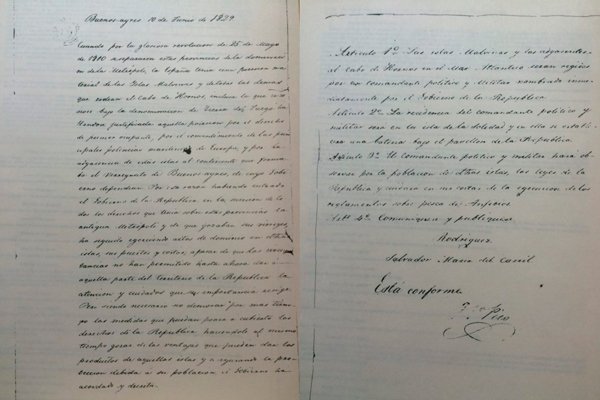
A clarification is necessary and an explanation is essential for the public to understand why the right of self-determination does not apply to the inhabitants of the #Malvinas Islands, although they make great efforts to sell otherwise. International law is clear. Let see. 🧵
https://twitter.com/FalklandsRepUK/status/1580146248551919616
The principle of peoples to self-determination is a fundamental principle of international law. Thanks to this, numerous oppressed peoples were able to create their own independent States during the process of decolonisation that took place in the second half of the 20th century.
For a number of years, UK denied the legal nature of the principle and only recognised the importance of this right in the '70s, when the independence process of their ex-colonies was essentially over & had the aim of justifying its position with respect to Malvinas & Gibraltar.
In the case of Malvinas, the self-determination is manipulated and wrongly invoked by the British government with two main objectives: to maintain Britain’s presence in the South Atlantic & to avoid settling the dispute over sovereignty with Argentina that has existed since 1833.
In international law, not every human community established in a given geographical territory holds the right of self-determination. This is why the law distinguishes between “peoples” and “minorities”, no matter whether national, religious, linguistic, ethnic, etc.
While the first group is entitled to the right of self-determination, the second is not. Indigenous peoples are also distinguished as a separate category to whom the Declaration of the UN recognises a right to self-determination, but only in its internal aspect.
None of the more than 50 resolutions passed by the #UNGA & the C-24 has recognized the existence of a separate people on the territory of Malvinas, & these resolutions have therefore taken other paths regarding the manner in which to proceed to the decolonization of the islands.
The position of the @UN as to how to put an end to the colonial situation is negotiation between Argentina and the UK to solve the dispute over sovereignty, taking into account the interests of the population of the islands.
It is worth remembering that when the UK attempted to incorporate an express mention of the right to self-determination in what a posteriori became Resolution 40/21 of November 27th, 1985, the UNGA. The reason is simple:
unlike ordinary cases of colonialism, that is, the oppression of an entire people by a colonial power, the Malvinas case concerns the eviction of a newly born independent State from a portion of its territory by the most powerful colonial nation of the time.
The fact that the present-day inhabitants of the Malvinas don't constitute a separate people holder of the right of self-determination doesn't mean they don't enjoy other rights. They are of course entitled to human rights, both individually and collectively.
If the UK m wishes that its citizens in the Malvinas should decide the fate of the territory, that territory should be British. On the contrary, there is a dispute over sovereignty with Argentina.
According to Rosalyn Higgins, former British judge and former President of the International Court of Justice: “Until it is determined where territorial sovereignty lies, it is impossible to see if the inhabitants have the right of self-determination”.
UK’s manipulation of self-determination is clear: 1) because the #UNGA , and not the colonial power, is the body in charge of determining the procedures to put an end to a colonial situation, and it has never applied such a principle to the current inhabitants of the islands;
2) because this is a special case of colonialism in which the victim of the colonial action was a recently established State; 3) because after the dispossession of Argentina, the British government established their own settlers;
4) because since then, it has controlled the migration policies of this isolated and scarcely populated territory; 5) because the current residents do not constitute a separate “people” who is a victim of colonial actions;
6) because the United Kingdom, after evicting Argentina and introducing its own settlers, rejected all proposals to negotiate and arbitration put forward by Argentina, while consolidating its presence in the islands.
Accepting that British subjects in the islands may themselves decide the dispute would mean a flagrant example of imposing a fait accompli. If there is a people who is a victim of colonialism to whom the self-determination can be applied here, that people is the Argentine people.
• • •
Missing some Tweet in this thread? You can try to
force a refresh






